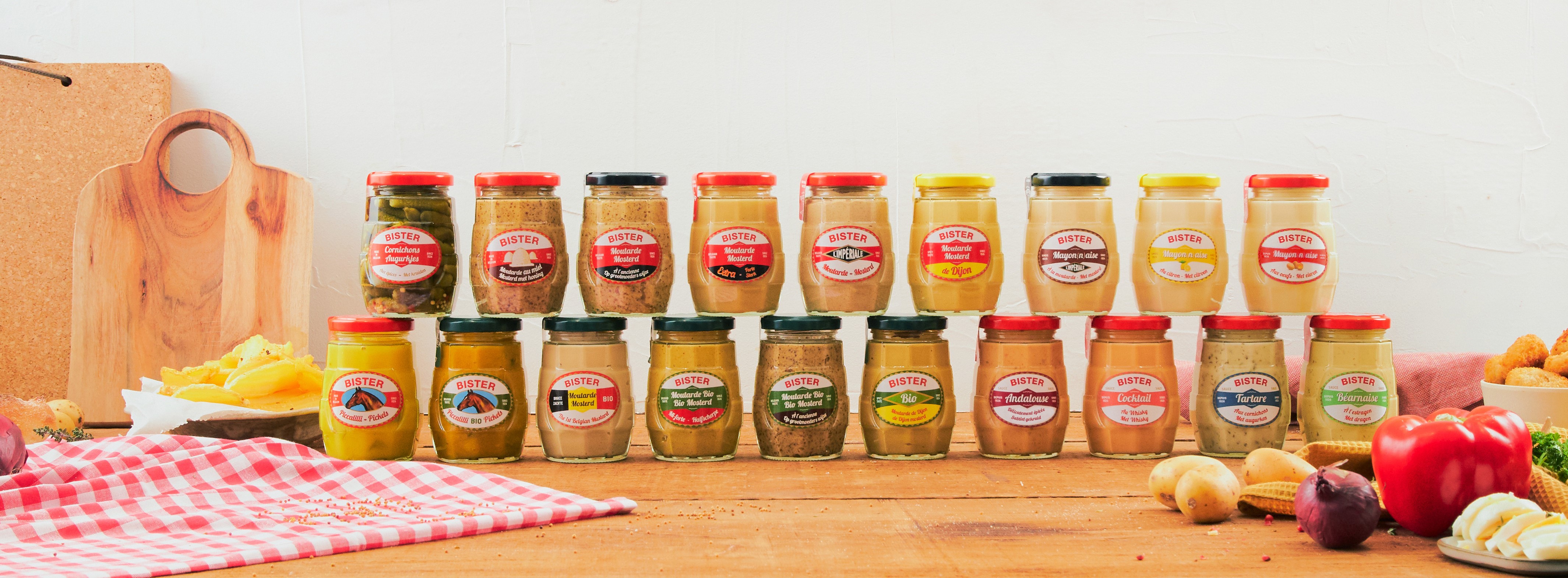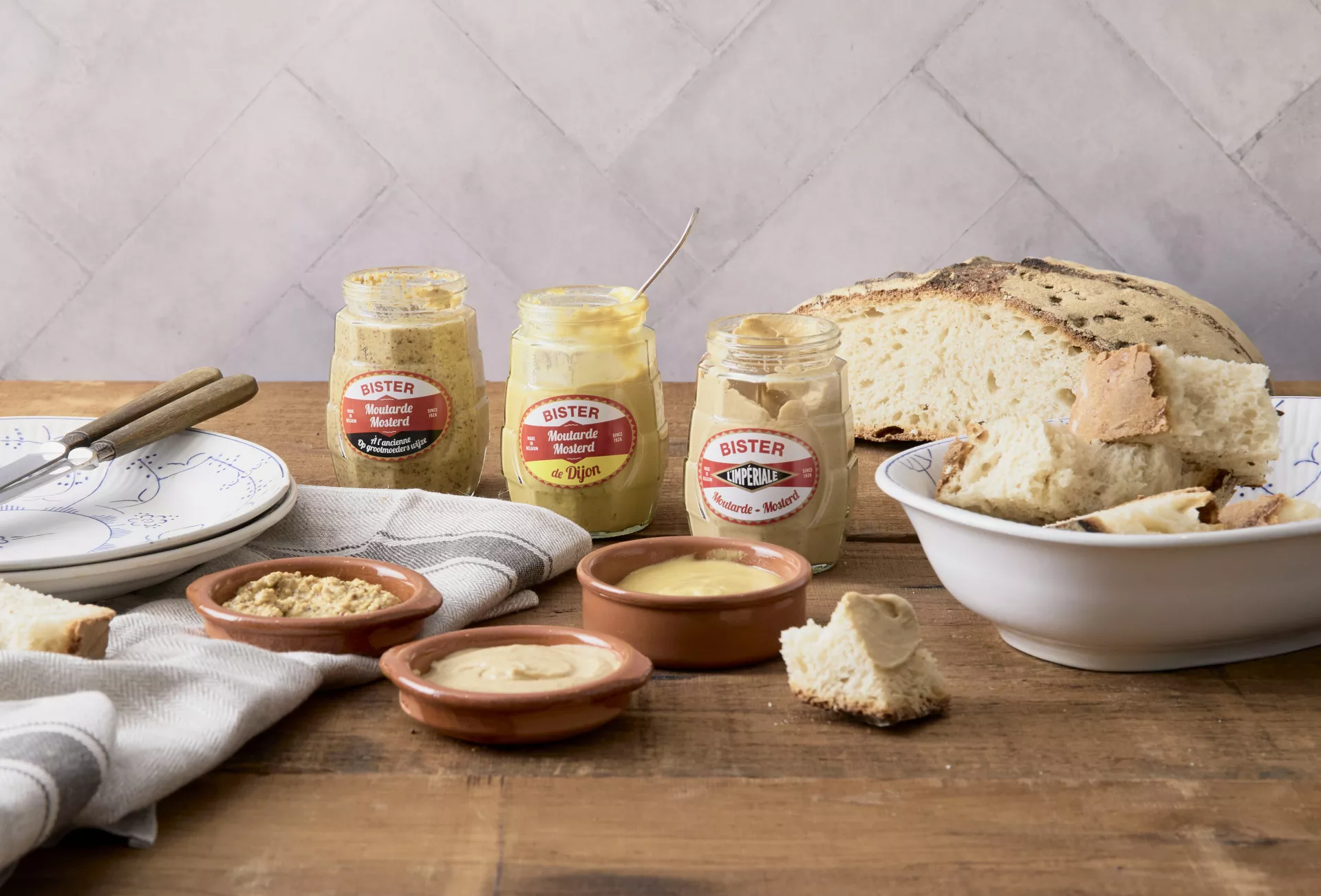The famous "grenade" jar! For all Belgians, it's a Madeleine de Proust... It awakens memories that are as sweet as spicy.
Franz Bister came up with the idea for this legendary jar just after the Second World War. A marketing genius before his time, Franz Bister was inspired by the Mills grenade, that was manufactured by the British during the Second World War and used by the Americans during the Liberation. The message: to open a Bister jar is to release explosive, pungent flavours!
Pull out all the pins, but recycle!
There's no question of changing this iconic jar! But it has been improved by reducing its environmental impact.
We had already replaced the plastic lids with metal ones. As a reminder, the production of plastic generates almost 2 billion tons of CO2 worldwide every year, and over 70 million tons of plastic waste becomes litter, taking up to hundreds of years to decompose. This pollution suffocates marine species, has a negative impact on soil and poisons groundwater, and can have serious repercussions on health (*).
Today, Bister is launching a new 'grenade’ format. A 900g jar in innovative packaging made from 30% recycled plastic. This rPET (recycled polyethylene terephthalate) format is made from PET materials that have been sorted, washed and ground before being melted down for reuse. Each kg of rPET produced reduces our CO2 emissions by 3kg compared with conventional plastics.
This closed recycling process reduces energy consumption by 50%, cuts CO2 emissions by up to 30% and reduces dependence on oil for the supply of raw materials. It's not perfect yet, but we're moving in the right direction.
Lighter and stronger, this new format, six times lighter in transport than glass, is available for Dijon mustards, à l'Ancienne and Impériale. An inimitable, authentic taste in more sustainable packaging to meet the demands of our customers and for the good of our planet.





(*) source : United Nations
